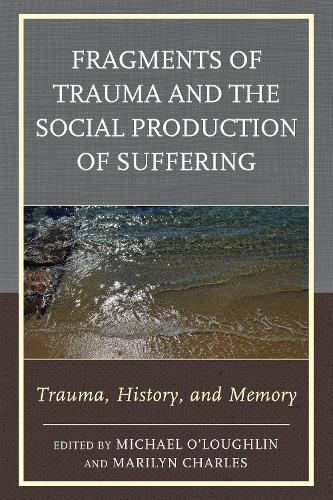
Fragments of Trauma and the Social Production of Suffering: Trauma, History, and Memory
(Hardback)
Publishing Details
Fragments of Trauma and the Social Production of Suffering: Trauma, History, and Memory
By (Author) Michael O'Loughlin
Edited by Marilyn Charles
Contributions by Judy Atkinson
Contributions by Claude Barbre
Contributions by Marilyn Charles
Contributions by Avigail Gordon
Contributions by Marie C. Hansen
Contributions by Richard T. Johnson
Contributions by Ingo Lambrecht
Contributions by Karen L. Lombardi
Bloomsbury Publishing PLC
Rowman & Littlefield Publishers
5th November 2014
United States
Classifications
Professional and Scholarly
Non Fiction
Psychotherapy
History of medicine
153
Winner of 21st Annual Gradiva Awards (Articles Category).
Physical Properties
Hardback
440
Width 162mm, Height 234mm, Spine 27mm
626g
Description
Fragments of Trauma and the Social Production of Suffering: Trauma, History, and Memory offers a kaleidoscope of perspectives that highlight the problem of traumatic memory. Because trauma fragments memory, storytelling is impeded by what is unknowable and what is unspeakable. Each of the contributors tackles the problem of narrativizing memory that is constructed from fragments that have been passed along the generations. When trauma is cultural as well as personal, it becomes even more invisible, as each generations attempts at coping push the pain further below the surface. Consequently, that pain becomes increasingly ineffable, haunting succeeding generations. In each story the contributors offer, there emerges the theme of difference, a difference that turns back on itself and makes an accusation. Themes of knowing and unknowing show the terrible toll that trauma takes when there is no one with whom the trauma can be acknowledged and worked through. In the face of utter lack of recognition, what might be known together becomes hidden. Our failure to speak to these unaspirated truths becomes a betrayal of self and also of others. In the case of intergenerational and cultural trauma, we betray not only our ancestors but also the future generations to come. In the face of unacknowledged trauma, this book reveals that we are confronted with the perennial choice of speaking or becoming complicit in our silence.
Reviews
This book breaks new ground in work on intergenerational transmission of trauma. It not only offers a multitude of ways of understanding how trauma is passed on, but it brings theory compellingly alive by embedding it in a diverse and international array of sociocultural situations. The diversity itself allows readers to appreciate and experience the complex and painful ways that passed-on traumas are lived and communicated to those who bear witness. -- Lynne Layton, Harvard Medical School
This is an indispensable book for anyone interested in how innovatively-applied psychoanalytical thinking can be profoundly but also practically useful. Trauma fragments memory and disables the cohering power of narrative. In this volume, highly skilled editors have facilitated the coming together of clinicians and consummate storytellers who have found ways to help traumatized individuals reconnect with and make sense of their lost and incoherent personal narratives. Working with the trauma in disparate cultures and across mute generations to help people 'live well and with integrity' may better be facilitated. -- Sue Wallace, Senior Adult Psychotherapist, National Health Service Greater Glasgow and Clyde
Fragments of Trauma is an important collection. Powerful and frequently unsettling, its chapters address experiences of trauma in settings from around the world: Mori communities in New Zealand, impoverished African-American neighbourhoods in the US, Irish immigrants in the UK, and many others. Uncompromising in its insistence that the psychic, social and historical dimensions of trauma cannot be separated, the book should be read by clinicians, social scientists and anyone who wants to grasp the continuing relevance of psychoanalysis to our understanding of social problems, as well as to overwhelming personal suffering and pain. -- Peter Redman, Editor of Psychoanalysis, Culture and Society
Author Bio
Michael OLoughlin, is professor in the School of Education and clinical and research supervisor in the PhD Program in Clinical Psychology at Adelphi University. Marilyn Charles, PhD, is a staff psychologist at the Austen Riggs Center and a psychoanalyst in private practice in Stockbridge, Massachusetts.
